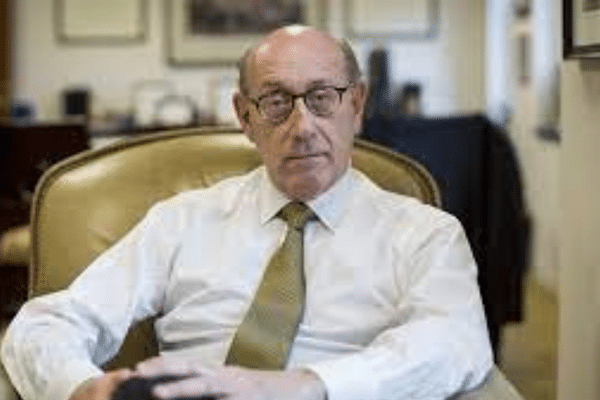Visionary & Trailblazing Attorney Kenneth Feinberg Offers Five Reflections On Bereavement
After serving thousands of families, victim compensation attorney Kenneth Feinberg offers five reflections on grief and bereavement.
By Joyal Mulheron with support from Maddie Cohen
Visionary and trailblazing attorney Kenneth Feinberg has long been called upon by U.S. presidents, families, and survivors to navigate payouts following mass tragedies. He started his career as a settlement specialist for Agent Orange, but is renowned for his leadership in overseeing the 9/11 Victim Compensation Fund (VCF), where he served families for 33 months pro bono.
On the morning of September 11, 2001, Feinberg was teaching class action mediation at a law school in Philadelphia. By the end of class, the world had changed.
By mid-November, Congress established the 9/11 VCF to compensate the thousands of people who lost a loved one or suffered a physical injury. Feinberg distributed over $7 billion to victim’s families.
During Evermore’s 2020 Digital Summit, Feinberg shared his reflections with Anita Busch, VictimsFirst President, on working with tragically bereaved families from the 9/11 attacks and the many other compensation or memorial funds from other tragedies.
Here are five reflections Feinberg offers for supporting bereaved families:
1) There is no one way to grieve.
Families grieve in different ways. Negotiating trauma yields a range of responses, including anger and disappointment to uncertainty and love.
Feinberg admits that when he accepted his assignment in 2001, he had no clue how emotional the work would be. Granted, the situation was emotional—but the thought of disappointing grieving families felt impossible.
2) Permission to grieve and a commitment to listening.
During these confidential conversations, he notes that families must be permitted to grieve. The door should be open for each individual to share their perspectives about life’s unfairness and to discuss or validate the memory of a lost loved one.
3) Language matters.
According to Feinberg, a less-is-more approach is best. Even people with good intentions risk saying the wrong thing when they try to show empathy after a tragedy. The families of victims and survivors might not want to hear someone else’s take on their grief, no matter how well the other party means.
Feinberg recalls meeting a bereaved father whose two children worked at the Pentagon. The man’s daughter narrowly escaped through a side door, and his son died looking for his sister.
When Feinberg met this father, he said something he deeply regretted.
This is a tragedy,” he stated. “It’s terrible. I know how you feel.”
The man offered Feinberg some friendly advice. “You have a tough job to do,” he said. “But you have no idea how I feel.”
Feinberg learned a life-altering lesson that day. And he cautions others to be careful as well. While intentions are important, language is too.
4) Be transparent.
The attorney recommends giving grieving families all the information they need in a private setting. It’s a matter of protocol, Feinberg explains—but that protocol is an important first step for people in a fragile emotional state. He adds that keeping the door open in this way has been a key factor in the success of programs like the VCF.
From the community’s perspective, Feinberg clarifies that the most important part of a community’s response to tragedy is transparency. Sharing how the greater community can help and how the distribution of compensation or assistance will work. When the world feels uncertain, clarity becomes even more essential for bereaved families.
5) Empathy matters.
No matter what anniversary it is, shedding light on the importance of empathy matters. Families understand the grief they are navigating and recognize that you cannot bring back their loved ones. Genuinely listening and learning about who they’ve lost can help.
To learn more, Feinberg shares his experiences with victim compensation in the books What is Life Worth? and Who Gets What? In 2020, Netflix released Worth, a movie starring Stanley Tucci and Amy Ryan, plus Michael Keaton as Feinberg, showcasing the challenges in the wake of 9/11.
Key resources
Readers can learn more about bereavement care and acknowledge the anniversary of 9/11 by visiting the links below:
Five Important Questions About FMLA and Bereavement Leave
Few Universities Offer Leave Policies and Grief Support for Bereaved Students

